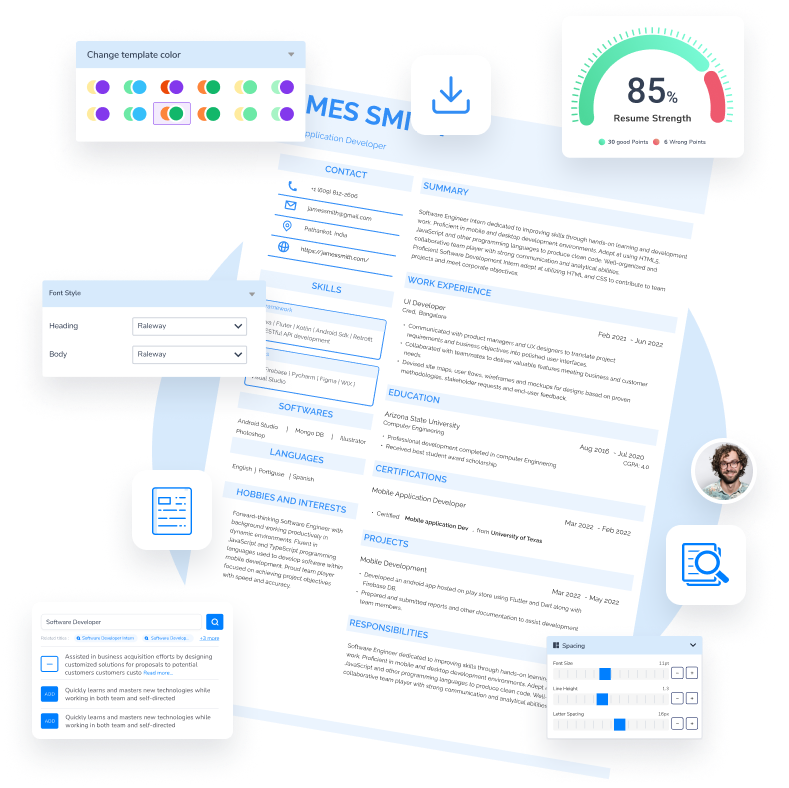8 questions you should ask your interviewer and Land at Top Jobs
7 Min read

Currently, the landscape for job seekers might be challenging. In other words, if you want a job now, the hard work begins with interview preparation.
This necessitates not just acing the interview questions you are given, but also knowing the questions to ask so as to leave a lasting impression on hiring managers. In the end, you review them just as much as they review you.
During an interview, the best questions to ask are those that not only extract pertinent information, but also reflect favourably on you as a candidate.
Here's the situation: A string of random questions will not garner much attention. You must come up with thoughtful questions to ask during an interview, ones that get people to take notice.
Your questions must demonstrate that you done your research on the position itself, that you share the company's values, and that you understand the industry's future.
These questions may also assist you in avoiding a nasty boss before it is too late.
Questions are the most effective approach to demonstrate that you understand the company's difficulties, underline how you can assist the company overcome those challenges, and convey your interest in the position in the clearest way possible by asking for it.
You do not need to ask every question on the list above, but having a few solid questions prepared will make you appear as an intelligent and well-prepared job prospect. Here are some more considerations to make while creating your own set of questions.
Avoid "Me" Queries: "Me" questions put you in front of the employer. This includes inquiries regarding salary, health insurance, vacation time, work hours, and other concessions.
During an interview, you should demonstrate to the employer how you can contribute to the company's success. Once you have been offered a position, you can begin to inquire about the company's benefits.
Ask Each Question Individually: Avoid multi-part inquiries, as they will overwhelm the interviewer. Each question should focus on a single point.
Avoid "Yes" or "No" Questions: The majority of questions with a "yes," "no," or other one-word response can likely be answered simply searching the business's website. Instead, ask questions that will spark a conversation between you and the employer.
Ask Questions Regarding Multiple Subjects: Avoid asking questions on just one subject. If you just ask questions about your manager and his management style, for instance, the interviewer may believe you have a problem with authority figures.
Demonstrate your curiosity and interest in all facets of the position by posing questions on a variety of topics.
While it is a good idea to try to create rapport with your interviewer, you should avoid asking personal questions that are not public knowledge.
For instance, if you see a college flag on an employer's wall, you may inquire whether he attended that institution. However, you should avoid excessively personal inquiries regarding the interviewee's family, colour, gender, etc.
What is a typical day like at [company name]?
Inquiring about operations and gaining an understanding of the "laid of the land" demonstrates your commitment to the firm and attention to detail. Frequently, hiring managers will begin by describing fundamental timelines, events, and projects.
Do not anticipate or insist on comprehensive explanations regarding clients and projects. They must continue to safeguard intellectual property. Concentrate more on the company's culture, ambiance, and people.
Inquire about newsletters, workplace picnics, and other efforts designed to foster teamwork. Executives enjoy bragging about their relationship with the team, so they should be eager to respond to this question.
Where do you see the company in five years?
This inquiry has dual functions. First, we all desire stability, and the recruiting manager's response will indicate the company's stability.
Who desires to work for a company that plans to lay off employees in the near future? Asking this question demonstrates to the interviewers that you are invested in the firm and wish to establish a long-term relationship.
The objective of hiring managers is to find applicants who are willing to stay for more than a few years.
What are the next steps in the job process?
Asking about the next steps demonstrates optimism and interest in the position. Hiring managers value a healthy feeling of self-worth.
Just be careful not to appear overly confident, as this may come across as conceited. Inquiring about the next steps also aids in identifying the protocols for follow-up and keeps you from worrying about returning too soon.

Try Now for Free!





